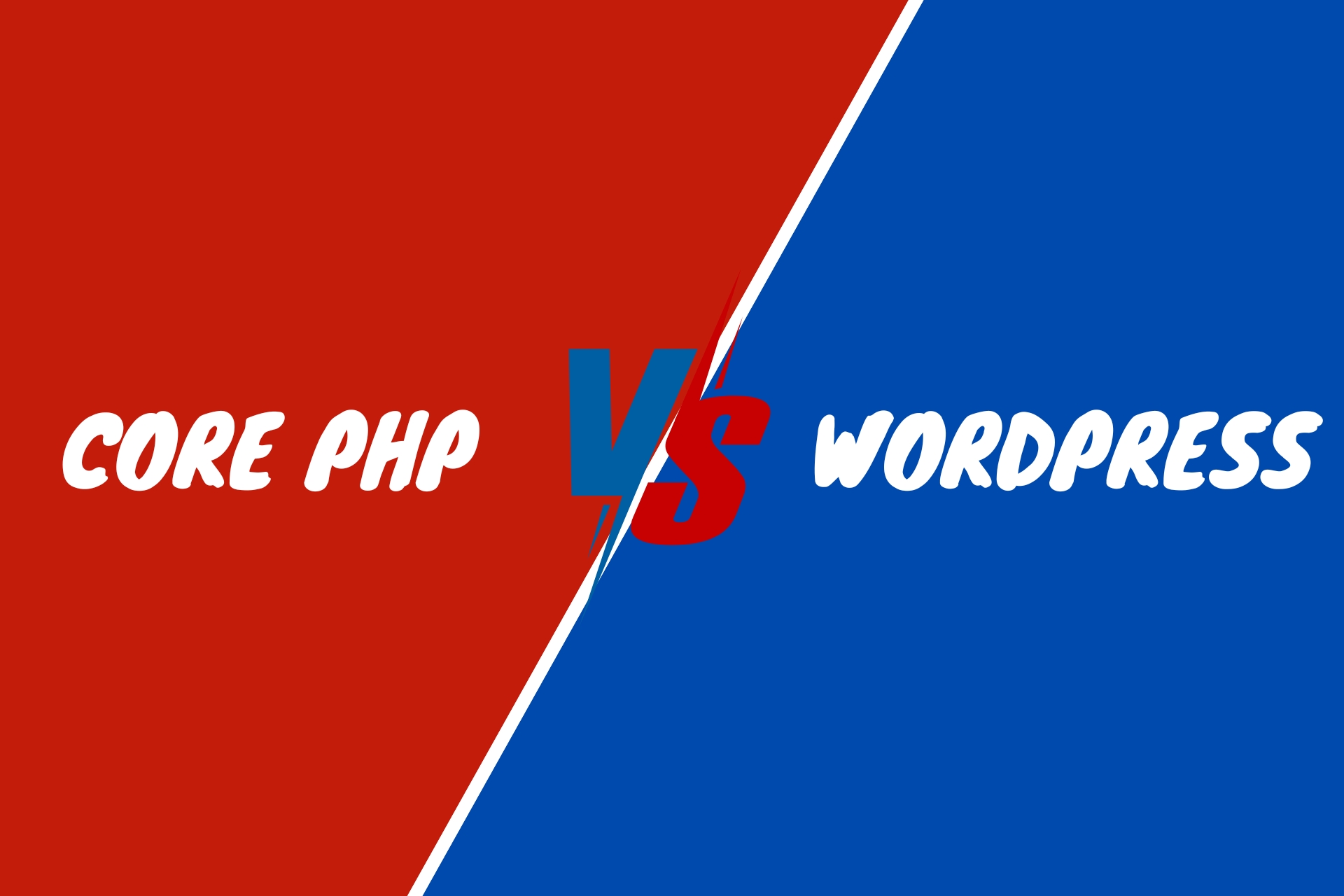
Why is a core PHP website better than a Wordpress website?
Choosing between a core PHP website and a WordPress website depends on various factors, including the specific needs of the project, the technical expertise of the developers, and the long-term goals of the site. Here are some reasons why a core PHP website might be considered better than a WordPress website for certain situations:
1. Customization and Flexibility
Core PHP: Offers complete control over the code and structure, allowing for highly customized solutions tailored exactly to specific requirements.
WordPress: While highly customizable, it can be limited by the themes and plugins available. Customizing beyond this can require significant effort and expertise.
2. Performance and Speed
Core PHP: Tends to be faster as it can be optimized for specific tasks and doesn't carry the overhead of unused features or plugins.
WordPress: Can be slower due to the overhead of the CMS itself and additional plugins, which may not always be optimized for performance.
3. Security
Core PHP: Security can be tailored to the specific needs of the application, with custom measures implemented to address particular threats.
WordPress: While generally secure, it is a popular target for attacks. Security depends heavily on the themes and plugins used, which can introduce vulnerabilities if not maintained properly.
4. Learning and Development
Core PHP: Ideal for developers who want to learn and understand web development at a deeper level, gaining insight into the underlying technologies.
WordPress: Easier for beginners to get started with, but might not provide the same depth of understanding of web development fundamentals.
5. Scalability
Core PHP: Easier to scale since developers can optimize and restructure the code as needed for performance and scalability.
WordPress: Can be challenging to scale for high-traffic sites or complex functionalities without significant customization and optimization.
6. Maintenance
Core PHP: Maintenance can be more straightforward since developers have control over every aspect of the codebase.
WordPress: Requires regular updates for the core, themes, and plugins, which can sometimes lead to compatibility issues and require troubleshooting.
7. Dependencies
Core PHP: Has fewer dependencies since it's built from scratch, reducing the risk of conflicts and reliance on third-party updates.
WordPress: Relies heavily on third-party plugins and themes, which can introduce dependencies and potential issues if not updated or supported.
8. SEO and Marketing
Core PHP: SEO and marketing features need to be developed from scratch but can be tailored specifically to the site’s needs.
WordPress: Comes with a range of SEO plugins and tools that make it easier to optimize for search engines, though advanced customization might still be needed for best results.
When to Choose Core PHP:
- When you need a highly customized solution.
- When performance and speed are critical.
- When you have a team of skilled developers.
- When security needs are very specific and robust.
- When you aim for a deeper understanding and control of the technology stack.
When to Choose WordPress:
- When you need a quick setup with many features out-of-the-box.
- When you need a user-friendly interface for content management.
- When you prefer using pre-built themes and plugins to save development time.
- When you have limited technical expertise.
- When you need a solution with strong community support and extensive documentation.
In conclusion, the choice between a core PHP website and a WordPress website should be based on the specific needs and goals of the project, as well as the skills and resources available. Each has its strengths and can be the better choice in different scenarios.




Share Link
Or copy link